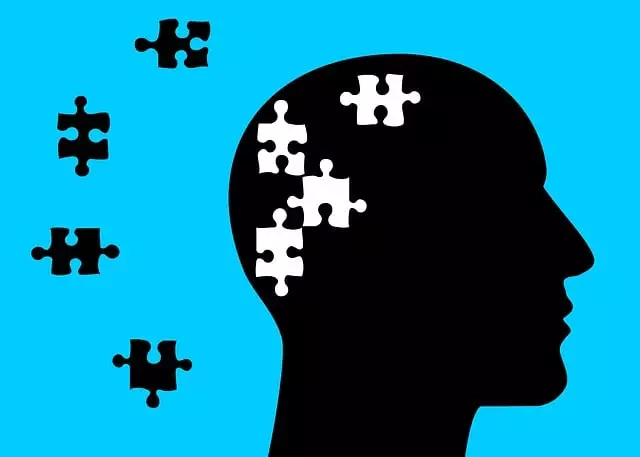Media portrayal significantly shapes public understanding of mental health, with positive representations encouraging open dialogue and support-seeking while negative stereotypes can lead to marginalization. Organizations like Kaiser Permanente Centennial address these challenges by offering tailored mental health services and promoting awareness initiatives. By challenging traditional tropes through diverse narratives, media fosters self-awareness and positive thinking. Kaiser's commitment to accessible mental health services in Centennial reflects a broader trend of comprehensive solutions aimed at empowering individuals to navigate societal perceptions surrounding mental health. Through campaigns featuring authentic stories, early intervention programs, and cultural competency training for healthcare providers, Kaiser is transforming lives by breaking down barriers to access and promoting holistic well-being.
“Uncovering the power of media in shaping societal perceptions, this article delves into the critical issue of mental illness representation. We explore how media portrayals can significantly influence public understanding of mental health, often perpetuating stereotypes and misconceptions. Through a case study focusing on Kaiser’s approach to mental health services in Centennial, we offer insights into challenging these narratives. Additionally, we present practical strategies for media organizations and communities to collaborate and promote accurate, empathetic representations of mental illness.”
- Understanding the Impact of Media Portrayal on Mental Health Perception
- Identifying Stereotypes and Misconceptions in Popular Media
- Kaiser's Approach to Mental Health Services: A Case Study
- Promoting Accurate Representation: Strategies for Media and Community Collaboration
Understanding the Impact of Media Portrayal on Mental Health Perception

Media portrayal plays a pivotal role in shaping public understanding of mental health issues. The way mental illness is depicted in movies, TV shows, and news articles can influence societal perceptions, often either promoting stigma or fostering empathy. Positive media representation can encourage open dialogue about mental health struggles, making it easier for individuals to seek support. Conversely, negative stereotypes and misinformation can lead to further marginalization of those living with mental illness. This is where organizations like Kaiser Permanente Centennial step in, offering mental health services tailored to address these societal challenges by promoting Mental Health Awareness through various initiatives.
By presenting diverse narratives that challenge traditional tropes, media has the power to encourage self-awareness exercises and promote Positive Thinking. Understanding the impact of these representations is crucial for fostering an environment where people feel comfortable discussing their experiences without fear of judgment. Kaiser’s efforts in providing accessible mental health services in Centennial reflect a broader trend of addressing this issue through comprehensive solutions, ensuring that individuals have the resources they need to navigate and challenge societal perceptions surrounding mental health.
Identifying Stereotypes and Misconceptions in Popular Media

In popular media, mental illness is often portrayed through stereotypes and misconceptions that can perpetuate harmful narratives. Shows and movies typically depict extreme cases of psychosis or portray individuals with mental health struggles as dangerous or weak. These representations fail to capture the complexity and diversity of real-life experiences with mental illness. At Kaiser, they offer comprehensive mental health services in Centennial, reflecting a growing awareness of the need for accurate representation.
To challenge these stereotypes, it’s crucial to develop Public Awareness Campaigns that highlight authentic stories of individuals living with mental illness. Initiatives like Mental Wellness Podcast Series and Mindfulness Meditation programs can contribute to this effort. By showcasing diverse perspectives and experiences, media platforms can foster a greater understanding of mental wellness, reduce stigma, and encourage early intervention and support-all vital steps towards improving public awareness and access to mental health services.
Kaiser's Approach to Mental Health Services: A Case Study

Kaiser, a prominent healthcare provider, has been at the forefront of addressing mental health challenges through its comprehensive services in Centennial and beyond. Their approach is a case study in how integrated care can transform lives. Kaiser offers a holistic view of mental well-being, recognizing that it’s intertwined with physical health. This means not only providing therapy and medication but also focusing on prevention and self-esteem improvement through various initiatives.
One notable aspect of Kaiser’s strategy is its commitment to cultural competency training for healthcare providers. By ensuring staff are equipped to understand and address the unique needs of diverse communities, Kaiser fosters a more inclusive environment. This training plays a pivotal role in promoting mental health awareness and effective treatment tailored to individual experiences. Through these efforts, Kaiser aims to break down barriers and improve access to quality care.
Promoting Accurate Representation: Strategies for Media and Community Collaboration

Media plays a significant role in shaping societal perceptions about mental illness, making accurate representation crucial for fostering understanding and breaking down stigma. To achieve this, a collaborative approach between media outlets and community organizations is essential. By involving individuals with lived experiences, healthcare professionals, and support groups in content creation, media can ensure narratives are authentic and reflective of the diverse mental health landscape. This strategy promotes empathy and challenges stereotypes often associated with mental illness.
One effective collaboration could involve developing educational series or documentaries that highlight various mental health conditions, recovery journeys, and available resources. Community outreach programs, such as those offered by Kaiser in Centennial (does Kaiser offer mental health services Centennial?), can provide valuable insights into local support systems. Encouraging media to incorporate these real-world connections not only enhances storytelling but also empowers viewers with actionable steps for seeking help or supporting loved ones experiencing burnout prevention (Burnout Prevention) or other mental health challenges. Mental wellness journaling exercises guidance from such collaborations can further reinforce positive changes in the community.
Media representation of mental illness plays a pivotal role in shaping public perception and understanding. By identifying and challenging stereotypes, we can foster a more accurate and compassionate view of mental health. The case study of Kaiser’s approach demonstrates the potential for positive change through collaborative efforts between media and communities. By promoting accurate representation, we not only reduce stigma but also ensure that individuals seeking help, like those in Centennial, have access to informed support and understanding. Through strategic collaborations, we can revolutionize how mental illness is portrayed, ultimately enhancing community health and well-being.






